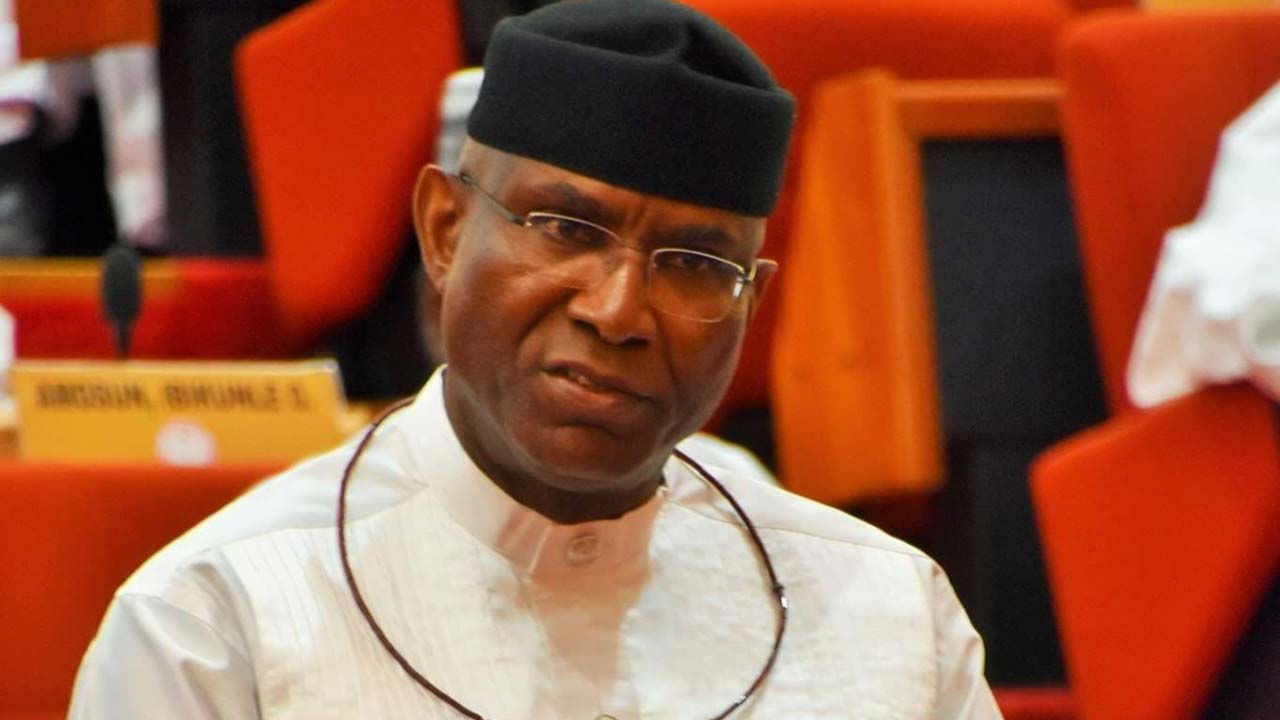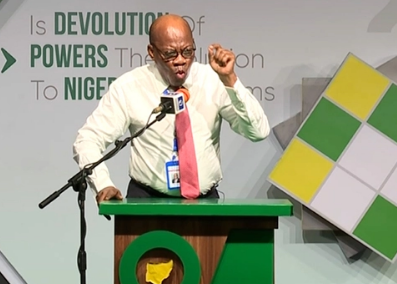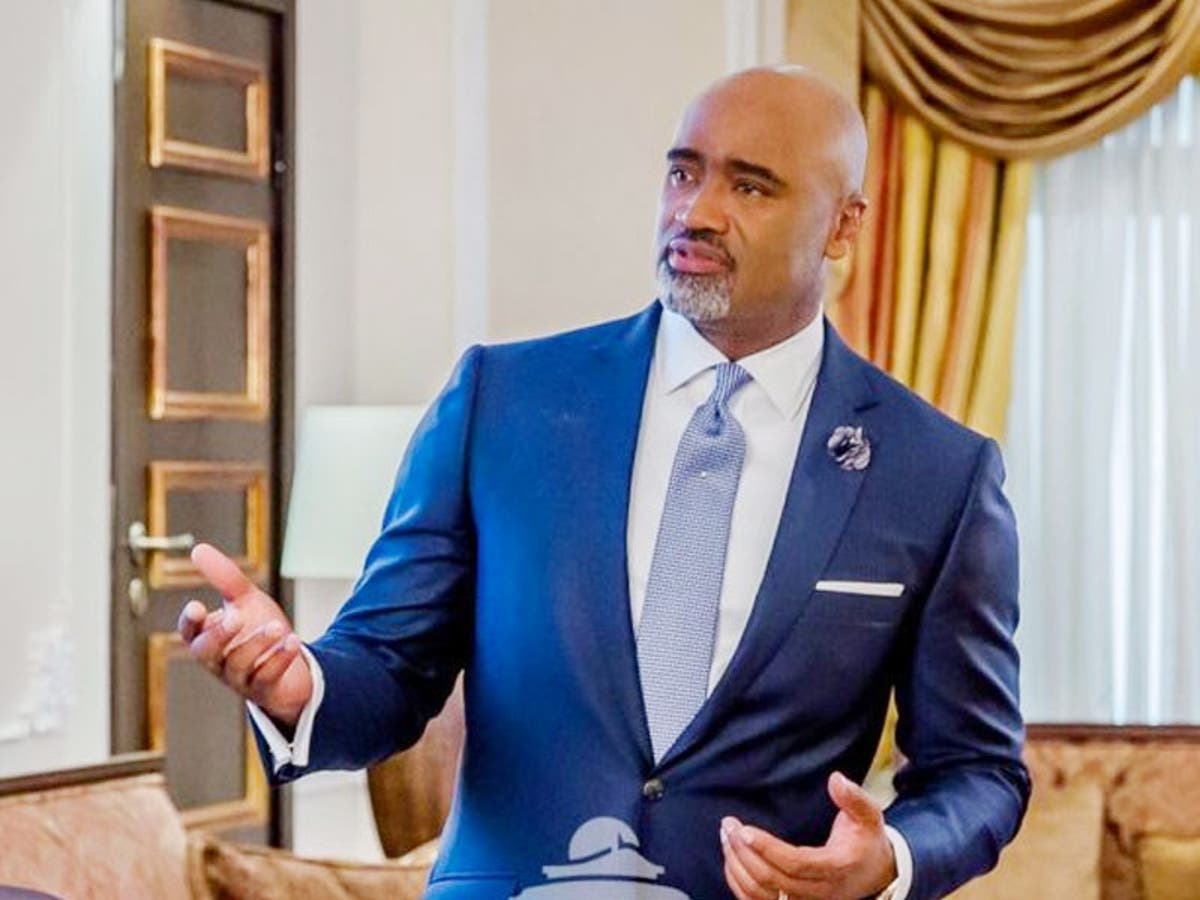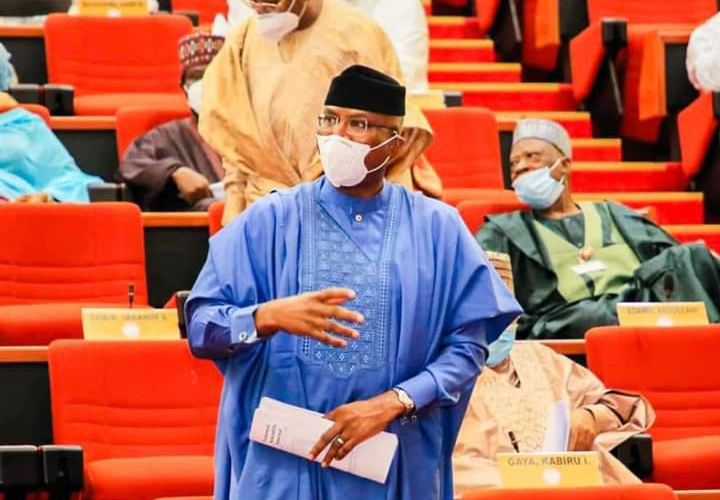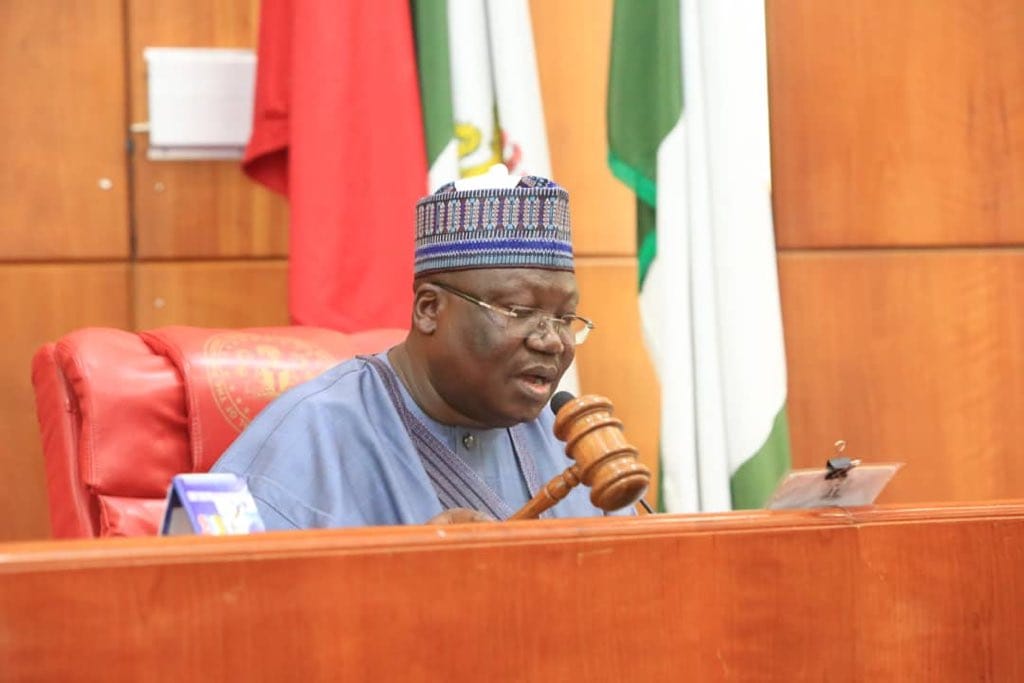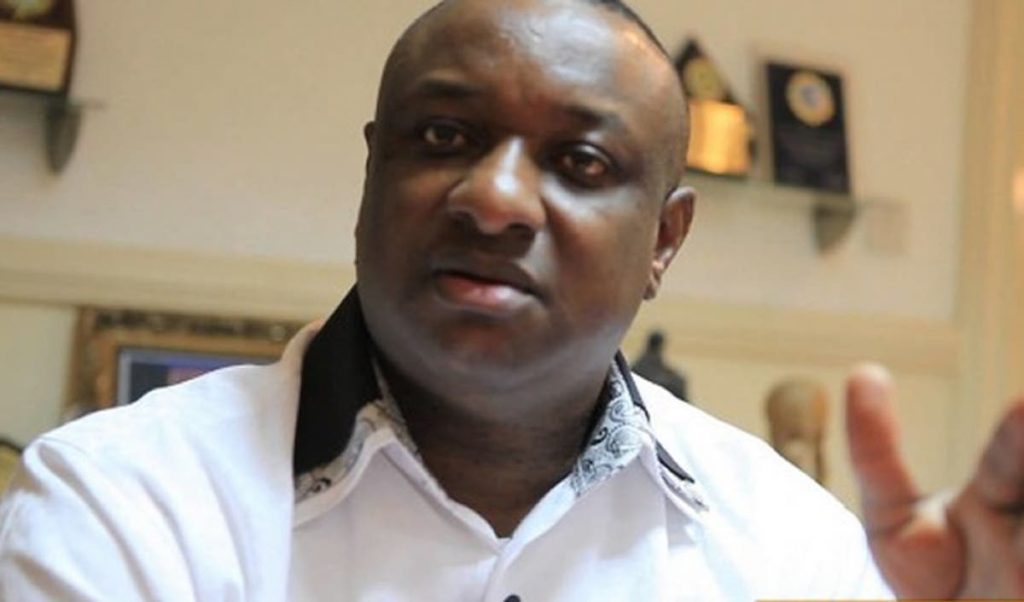By Chid Amuta
Since 1999, democracy has delivered two persisting dividends to Nigeria: a predictable calendar of national ritual and a gigantic all- powerful political industry. Imperfections and disfigurements notwithstanding, we now have a fair idea of what must happen in this polity every four years. The campaigns. The festival of rallies. The pageant of politicians who address mobs of starving illiterates in English. The parade of known villains as born again messiahs crowned by the reduction of our national hopes into party marketing slogans and lazy catch phrases. Afterwards, the mournful processions of losers and their crashing ambitions drowned by the drums of triumph and ascension trails of winners to power, wealth and glory.
Beyond this drama, the real dividend of democracy may be the emergence of politics as a huge unregulated industry. Politics and politicians regulate and direct our lives. The political industry through its control of the mechanics of government is the ultimate allocator of wealth, opportunity and privilege. It owns and controls the public sector through the complex machinery of the administrative state. It also controls the private sector through regulatory institutions like the stock exchange and the Central Bank in addition to frequent legislative disruptions and interventions. The political industry has a monopoly of the awesome power of outlandish pork, patronage and elaborate rents.
But who actually regulates the political industry? This question has become urgent and necessary as the nation reels under a prevalent and crippling deficit of competence, accountability and responsibility among key captains and operatives of the nation’s mammoth power and politics industrial complex.
We are dealing with an expansive all- dominating industry. It is a manpower dominant industry, employing a huge army of people with their own extended family of hangers on. It is equally an influence pervasive industry. Most importantly, this is an industry that controls every other industry, regulating the environment in which others practice, thrive or wither. The political industry is a super ordinate behemoth, one that determines its own rules and regulations, sets its own entry requirements, procedures and performance standards. For the nation at large, the choice of who leads us is vested in the political parties which act as clearing houses for the political industry.
We can only guess the precise size of this industry when we estimate the sheer number of elective and appointive offices and their correlates that have featured in the political cycles since 1999. There are at any given time, the President, Vice President, about 36-42 ministers, 30-100 advisers (special, senior special, plenipotentiary etc),109 Senators, 360 House of Representative members (add at least 500 legislative aides), 36 Governors, 36 Deputy governors, about 540 commissioners, about 1,000 plus members of state houses of assembly, 776 Local government chairmen, 9,288 Councilors.
Take the total emoluments, allowances, perquisites, paraphernalia and benefits of all political office holders at the various levels of government and you begin to imagine the expanse, size, capital and recurrent cost of the political industry. A recent industry market survey has determined that official Nigeria alone buys more Japanese SUVs every four years than all the desert safari companies of the Gulf Arab states put together!
Most importantly, the captains of this army of political officialdom are responsible for determining the national, state and local government budgets. They allocate the resources, appropriate the funds and expend same on behalf of all of us.
Yet somehow, politics has managed to disguise its industrial scope and status by focusing public attention on the myth and ritual of democracy decorated with the rhetoric of representative government and public service. Sometimes, politicians have focused attention on the game aspect of politics, playing it more like a vicious but unserious sport. A few honest political actors have, however, come close to admitting their role as players in an all important industry by emphasizing public service as the essence of political leadership. In other words they are in it to serve ‘the people’, a sort of enlightened service industry that renders an invaluable service to a nebulous client called ‘the people’.
As leaders and controllers of the mechanics of government, political industry captains and operatives determine the basic outlines of our lives and livelihood as citizens, corporate or private. They determine your access to basic services, how much you will pay as tax and what will be left for you and your family. They determines how much you will pay for darkness punctuated by electricity, the quality of teachers that your children will be saddled with, what your essential drug will cost, how many toll gates will dot your way to your village as well as the size of your retirement pension if any.
We may endlessly trumpet the relative independence of the private sector and its power to determine the economic fate of the nation. This is only to the extent that the political industry creates the legislative and general macro economic environment in which such private sector can thrive. Otherwise, even the boldest and most massive private sector investment and economic power can be drowned and destabilized overnight by a casual regulatory twist by the presiding political establishment.
The political industry is the most attractive sector of the economy, guaranteeing an out of this world return on investment. Here is one industry that powers the creation of new social classes at a rate that would make any business entrepreneur blue with envy. It used to be the belief that education or entrepreneurship are the quickest routes out of poverty. Not anymore. The political industry is the only one in which a destitute can leapfrog into the billionaire club in less than four years. A local government councilor or chairman can transmute in a very short time from a miserable jobless pauper into an upper middle class poster boy cruising around in fancy cars, living it up in five star hotels and jetting casually across the globe.
This is precisely because the main unofficial activity of the political industry is rent seeking and rent sharing. This is a complement to the allocation of pork as well as the privatization of constituency benefits. In Nigeria, political office holders tend to be state officials in the day and rent seekers and pork administrators at night. Due to the preoccupation with rents, a political city like Abuja is easily the most expensive piece of real estate anywhere on the African soil. Property prices and rentals as well as the general price levels for luxury goods tend to bear no relationship to the value of the item on sale.
This is not peculiar to Abuja. It tends to apply to most political capitals in the world. In the United States for instance, of the ten most expensive neighbourhoods nationwide, five are in Washington DC. In a rent seeking economy, the proceeds come from an invisible trade in favours, influences and connections up to the highest level.
Like every other industry, our political industry has a monopoly of its own recruitment and entry requirements. The strengths and defects in the system are showcased by the performance of the leaders of today especially our imperious state governors. In all fairness, the system has thrown up a few good men. One outstanding governor is leading the charge against the Covid-19 emergency with clear, articulate and sensible strategies to the delight of the enlightened citizens of his diverse and cosmopolitan state. Another has spent the better part of the last four plus years leading a charge for visionary modernizing governance in a northern citadel state where decadent tradition is battling his efforts. Another has called out soldiers engaged in the Boko Haram counter insurgency for collecting tolls at checkpoints while the terrorists regroup and unleash mayhem.
One other governor, claiming ever so often to be a scholarly expert in fields ranging from epidemiology to semantics has urged his citizens to avoid social distancing but wear only face masks. Another has usurped the exclusive functions of the federal government by seizing aircraft, arresting pilots and oil workers at will for infringements against his imperial diktat.
Yet another governor has insisted that citizens of his land locked state need no Covid-19 tests since his all-knowing government has launched an App to determine their health status by remote sensing! Another one has insisted that his state is under divine immunity from the virus as it is the only one whose name appears severally in the Bible.
From this mixed bag of possibilities, the question that therefore arises is this: Are the captains of the political industry a special interest elite or just strange bed fellows? Are they recognizable by certain features beyond their garish costumes? Is there a unity of purpose, a solidarity of ways and means or some esprit de jouer among them as political players?
Interactions among them are powered by naked subterfuge. Their quarrels are devoid of substance but yet vicious and warlike. Their disagreements are petty and manage sometimes to rise only to the level of motor park gang feuds. Often, these feuds are settled through rival juju priests armed with amulets and calabashes of dangerous concoctions. In extreme cases, hired assassins are called in for terminal solutions using military grade armaments ranging from assault rifles to improvised explosive devices. Our election seasons become seasons of undeclared warfare fought sometimes in cahoots with rented official security personal.
Where on rare occasions factional captains of our political industry disagree on policy issues, these disagreements are never ideological. They tend to be a cascade of personal insults and undisguised abuses laced in the idiom of plain gutter snipes. Our parliamentarians engage in no serious debates nor are they identifiable by any known policy inclinations except those dictated by the compass of geo politics, primordial nativism and tribal arithmetic.
On paper, our political industry may not be as unregulated as I have sounded. After all, every democracy has checks and balances that deter political leaders from gulping absolute power. We expect the legislature, judiciary, the media and civil society to weigh in against the absolutist promptings of an ambitious executive branch. But in our circumstance, do the politicians play by the constitution? Is the followership equipped to hold them accountable by the provisions of a constitution which they themselves hardly understand. In line with the provisions of the 1999 constitution, how many legislators have been recalled by their constituencies since 1999? Hardly any!
Yet, the Nigerian parliament has relentlessly distinguished itself more by its rascality than anything else. It is fond of floating and fast-tracking bills of doubtful origins and motivation. It is about to railroad a dubious compulsory vaccination bill into law. It once tabled and debated a bill that sought to legalize same sex marriage, another one on social media gagging and yet another seeking to punish ‘hate’ speech by death penalty. These gambits and legislative escapades have been promoted in spite of an abundance of other unattended and urgent national issues. Urgent social legislations on education, healthcare, health insurance, rights of women, social security etc. remain unheard of.
The bane of Nigerian politics is that our politicians are mostly lawless. They hardly obey the very laws they make or, for that matter, abide by the oaths of office which they take with hands placed on the holy books. People who cannot keep a contract they reach with their fellow men with God as witness cannot be trusted to obey a man -made constitution.
Nor can we expect the judiciary to curtail the rampaging charge of disorderly politicians in both the executive and legislature. The judiciary as the only branch of government not composed of politicians bears a peculiar burden. But with the passage of time, our politicians have discovered that the easiest way to disregard the constitution is to blackmail, pocket or compromise the judiciary.
That leaves us with the media to regulate the political industry. One of the ancient truisms of democratic discourse is that the media constitutes a so-called ‘fourth estate’ of the realm. In other words, the media is expected to watch over the political industry by reporting and exposing threats to the sanctity of democratic power. Technology has rendered this truism rather ancient. The rise of the social media means that the power of the media has been dissipated among all citizens who have smart phones, computers and computerized devices in their hands or back pockets.
We are in the era of everyman as editor, writer, reporter, publisher and media mogul. The established media houses only have the power of brand recognition but no longer a monopoly of the political power of the written word. Alternative media has come with alternative truths in an age that glorifies bare faced lies as ‘alternative truths’. Fake news has emerged as a distinct field of journalistic enquiry with immense political impact and consequences. In a world like this, technology has literally annulled the power of the media. In becoming liberated into the private domain of personal expression, the media has lost its institutional contention for political power. Autocrats no longer need to close media houses anymore. The genie has left the bottle and flown away.
Our fall back position then would be to retreat into a strictly constitutional republic where the ultimate playbook is the constitution. But a political industry led by rascals and unenlightened power opportunists cannot be trusted guarantee accountable and smart governance according to any constitution. To move forward, we need to reform the political industry to serve a modern Nigeria in two ways.
First, we urgently need a reform of the nation’s political party mechanics. We must migrate from parties of presumption and notion with ascribed hierarchies to parties of merit based on ideologies in which ascendancy is earned. Only a meritocratic political culture can produce a political industry that would be credible, self- regulating and compliant with the constitution.
Secondly, we need a knowledge based political establishment to counter the prevailing reign of embarrassing ignorance at most levels of power. An ignorant political industry cannot control and regulate a private sector and civil society that are advanced in knowledge which today rules the world. This particular challenge presents a teachable moment for Nigeria. We need to quickly resurrect the idea of something like the defunct Center for Democratic Studies, a permanent institution to continuously teach successive operatives and captains of our political industry how best to run a responsible democracy that works for all.
Chidi Amuta is a member of TNG’s advisory board
